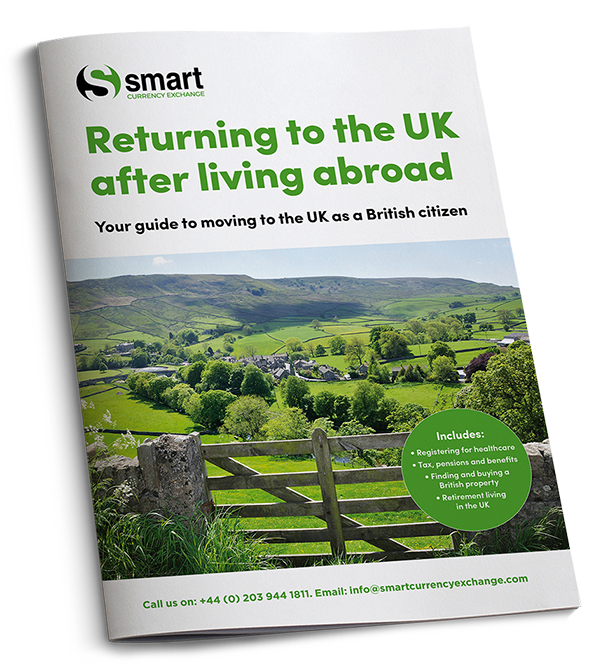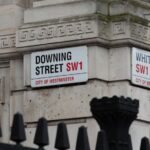After emigrating many years ago, you may now be thinking of packing up and moving back to the homeland. While hundreds of thousands of us leave the UK each year to try our luck abroad, around 200,000 British people return each year, too.
So, if you are moving back to the UK after living abroad, do you still need to think about currency?
Get your free copy of the Returning to the UK Guide
Download now
Plan early
If you’re returning to the UK and your savings, assets and income are in a foreign currency it is important to plan early.
You will normally need to exchange large amounts of money back into sterling. If you are selling a property abroad and buying one in the UK, this will run into hundreds of thousands. It is, therefore, vital that you protect this large sum of money from fluctuating exchange rates.
We can help in three ways:
1. We can help you set your budget
We will tell you how much you will get for your money once it has been transferred into pounds sterling. This is invaluable, as there is no point in looking at properties in the UK that lie outside your price range.
2. We can protect your money against fluctuating exchange rates
We can suggest the right solutions, such as a forward contract, to protect your money from the volatility of the currency markets. In recent years, it has not been unusual for exchange rates to move by as much as 5 or 10% or more during the property buying process.
Many have found that they are then unable to afford the property of their dreams because they didn’t plan their currency exchange properly.
3. We can ensure your currency transfers are safe and efficient
We are used to dealing with overseas banks and estate agents and will help ensure the process all goes through safely. Your dedicated personal trader will be at the end of the telephone to iron out any last-minute glitches.
EUR/GBP update
If you’re looking to transfer your euros into pounds, you’ll be pleased to know that the euro is strong (at the time of writing). The pound weakened this morning and is close to a 9-month low against the euro. Against the dollar, it is at a 2-year low.
Weaker-than-expected UK GDP, as well as data showing that UK’s jobless rate rose for the first time since 2020 have contributed to sterling’s decline. In addition, an increase in tensions between the UK and EU over the Northern Ireland protocol is also weighing on the pound.
However, this could all change in a matter of hours. With rising inflation, high interest rates, the war in Ukraine and recovering economies, both the pound and the euro are vulnerable to volatility. This is why it’s important to protect your money.
For more information about returning to the UK from abroad, download our handy Returning to the UK Guide.























